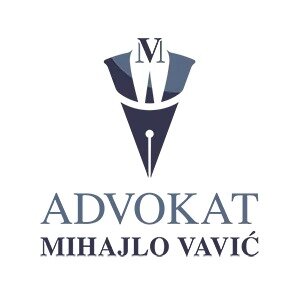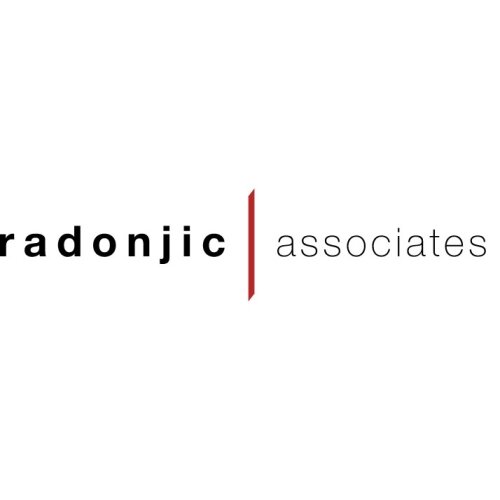Best Faith-Based Law Lawyers in Podgorica
Share your needs with us, get contacted by law firms.
Free. Takes 2 min.
List of the best lawyers in Podgorica, Montenegro
About Faith-Based Law in Podgorica, Montenegro
Faith-Based Law in Podgorica, Montenegro, primarily refers to the legal frameworks and considerations surrounding religious practices, organizations, and interactions between religious entities and the state. Montenegro is a secular state with a variety of religious groups coexisting, including Orthodox Christians, Muslims, Catholics, and others. Faith-Based Law may address issues such as the registration of religious entities, religious freedoms, education, and the rights of religious communities. Understanding these laws is crucial for religious organizations and individuals seeking to practice their faith in alignment with local regulations.
Why You May Need a Lawyer
There are various situations where individuals or organizations might need legal assistance in matters of Faith-Based Law:
- If you're establishing a religious organization and need help with registration and compliance with state regulations.
- When facing discrimination based on religious beliefs or practices.
- If there are disputes involving church property or financial matters within a religious group.
- In cases where you require clarification on the rights and freedoms associated with practicing your faith.
- When dealing with issues of faith-based education and its acceptance within the public education system.
- If you need advice on how to legally organize religious ceremonies and gatherings.
Local Laws Overview
In Podgorica, Montenegro, and the wider country, the Constitution guarantees freedom of religion and the separation of church and state. Key laws impacting Faith-Based Law include:
- The Law on the Legal Status of Religious Communities, which regulates the registration and functioning of religious organizations.
- Provisions on anti-discrimination which protect individuals from harassment or discrimination based on religious beliefs.
- Education laws that might affect faith-based schools and religious education programs.
It is essential for religious entities to stay in compliance with these regulations to avoid legal issues and ensure the smooth operation of their activities.
Frequently Asked Questions
What rights do religious communities have in Montenegro?
Religious communities have the right to operate, own property, and organize educational activities. They must, however, comply with national registration requirements.
How do I start a religious organization legally in Podgorica?
You need to register your organization with the Ministry of Justice, ensuring you meet all criteria laid out under the Law on the Legal Status of Religious Communities.
Can religious entities own property in Montenegro?
Yes, they can own property. However, disputes can arise that require legal intervention, especially regarding inheritance or transfer of property.
Is faith-based education supported by local laws?
Faith-based education is permitted, but it must align with the national educational framework and standards, as determined by the Ministry of Education.
What should I do if I experience religious discrimination?
You should seek legal advice to address any acts of discrimination, as local laws prohibit any form of harassment based on religious beliefs.
How are religious ceremonies regulated?
Ceremonies can generally be conducted freely, but for public gatherings and use of public spaces, necessary permissions may need to be obtained from local authorities.
Can religious symbols be displayed in public institutions?
Public institutions adhere to secular principles, making the display of religious symbols subject to specific regulations and guidelines.
Are there legal protections for minority religious groups?
Yes, all religious groups are entitled to equal rights and protections under the law, regardless of their size or influence.
How does church-state separation affect religious practice?
The principle ensures that religious organizations operate independently of the government, although they must comply with applicable laws and regulations.
Is legal aid available for cases involving Faith-Based Law?
Yes, legal aid can be sought through private law firms specializing in Faith-Based Law, or through governmental legal aid services for those who qualify.
Additional Resources
For further assistance or information, consider reaching out to the following:
- The Ministry of Justice of Montenegro, which oversees legal matters relating to religious communities.
- The Human Rights Ombudsman of Montenegro for issues regarding discrimination or human rights violations.
- Local NGOs focused on religious freedoms and human rights, which can provide insights and support.
Next Steps
If you need legal assistance in matters related to Faith-Based Law, start by consulting with a lawyer who specializes in this field. Compile all relevant documentation and be prepared to discuss the specifics of your case. Consider contacting local legal aid organizations if you require assistance with fees. It’s essential to stay informed and proactive about your rights and responsibilities under local laws to ensure the proper functioning of religious activities.
Lawzana helps you find the best lawyers and law firms in Podgorica through a curated and pre-screened list of qualified legal professionals. Our platform offers rankings and detailed profiles of attorneys and law firms, allowing you to compare based on practice areas, including Faith-Based Law, experience, and client feedback.
Each profile includes a description of the firm's areas of practice, client reviews, team members and partners, year of establishment, spoken languages, office locations, contact information, social media presence, and any published articles or resources. Most firms on our platform speak English and are experienced in both local and international legal matters.
Get a quote from top-rated law firms in Podgorica, Montenegro — quickly, securely, and without unnecessary hassle.
Disclaimer:
The information provided on this page is for general informational purposes only and does not constitute legal advice. While we strive to ensure the accuracy and relevance of the content, legal information may change over time, and interpretations of the law can vary. You should always consult with a qualified legal professional for advice specific to your situation.
We disclaim all liability for actions taken or not taken based on the content of this page. If you believe any information is incorrect or outdated, please contact us, and we will review and update it where appropriate.









